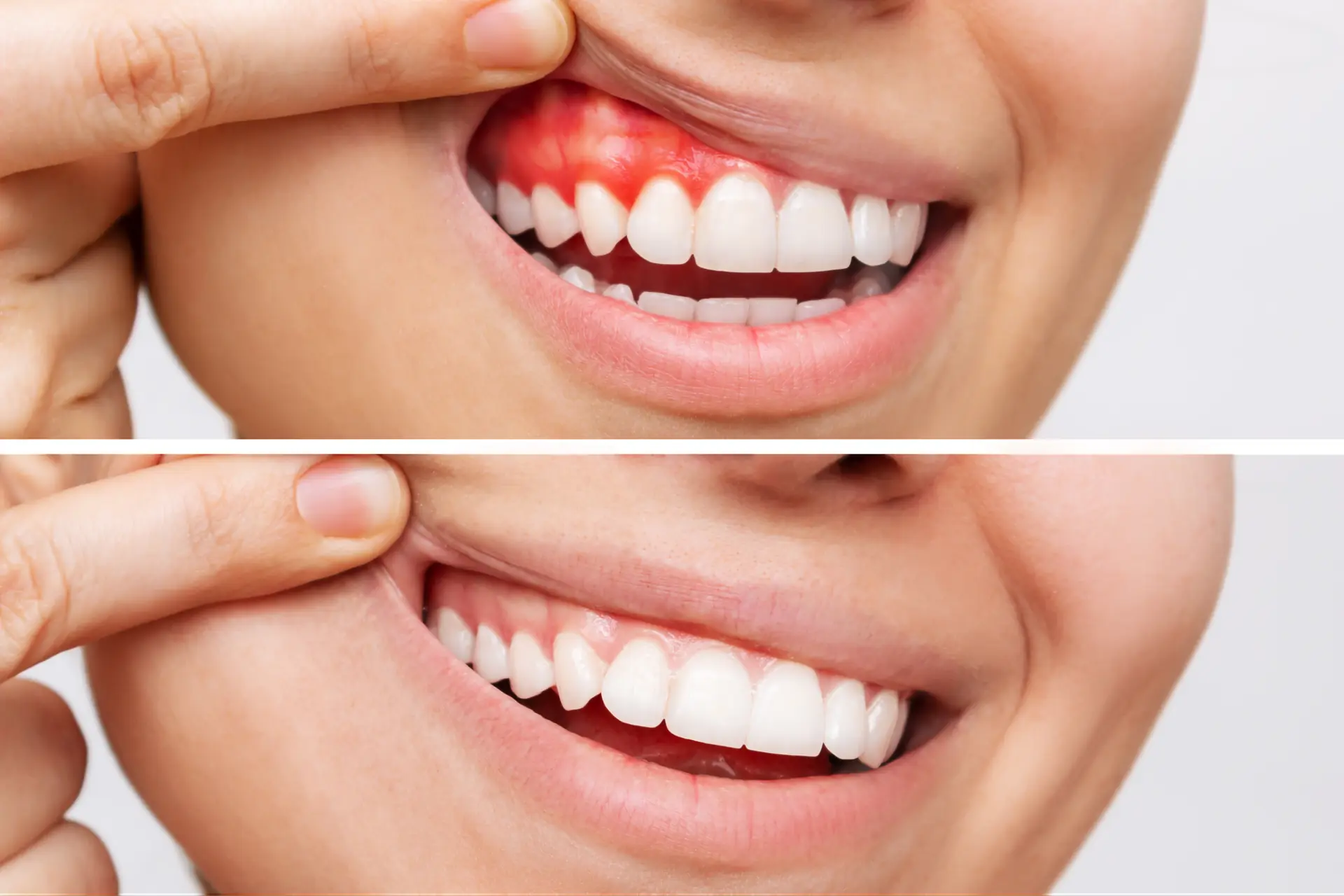Bleeding gums is a common oral health issue that affects millions of people around the world. It is characterized by bleeding from the gums, especially during brushing or flossing.
Although sporadic gum bleeding may not be a cause for worry, regular and excessive bleeding could signify an underlying issue that requires attention.
More About Bleeding Gums
Before we dive into the details, it’s important to understand what exactly bleeding gums are. Our gums are made up of soft tissue that surrounds our teeth and helps keep them in place.
When the tissue in your mouth gets inflamed or irritated, it can lead to bleeding. This condition, known as gingivitis, is the main reason behind bleeding gums.
Causes of Bleeding Gums
As previously stated, gingivitis is the primary reason for gum bleeding. It happens when there is a buildup of plaque and bacteria on the teeth, which then causes irritation to the gum tissue.Other common causes of bleeding gums include:
- Brushing too hard: While it’s important to brush our teeth regularly, brushing too hard can actually do more harm than good. Aggressive brushing can damage the delicate gum tissue and cause bleeding.
- Hormonal changes: Menopause or pregnancy can lead to hormonal shifts that increase gum sensitivity and make them more susceptible to bleeding.
- Vitamin deficiencies: Vitamin C and K deficiencies can weaken the blood vessels in the gums, making them more susceptible to bleeding.
- Medications: Blood thinners and aspirin are among the medications that can heighten the chance of experiencing bleeding gums.
- Medical conditions: Bleeding gums can also be a symptom of underlying medical conditions like leukemia, diabetes, and heart disease.
Signs & Symptoms of Bleeding Gums
When it comes to bleeding gums, you need to look out for these signs:
- Redness and swelling: Inflamed gums can appear red and swollen.
- Tender or painful gums: Bleeding gums can also feel tender or painful to the touch.
- Bad breath: Bacteria buildup in the gums can cause bad breath.
- Receding gums: If bleeding gums are not treated, it can result in gum recession. This occurs when the gums move away from the teeth, revealing more of the tooth and roots.
Treating Bleeding Gums
Fortunately, bleeding gums can be treated and even prevented. Here are a few tips to help keep your gums healthy:
- Practice good oral hygiene: Make it a habit to brush your teeth twice a day and floss daily. Doing so will effectively eliminate plaque and bacteria buildup in your mouth.
- Use a soft-bristled toothbrush: Avoid using hard-bristled brushes, as they can damage the gum tissue. Opt for a soft-bristled brush instead.
- Visit the dentist regularly: Regular dental check-ups and cleanings can help prevent and treat bleeding gums.
- Quit smoking: Smoking can weaken the immune system and make it harder for your gums to heal properly.
- Increase vitamin intake: Make sure you are getting enough vitamins C and K in your diet or through supplements. These vitamins help strengthen blood vessels and promote healthy gum tissue.
- Use a mouth rinse: Rinsing with an antiseptic mouthwash can help reduce plaque and bacteria in the mouth.
Our dentists individualized guidance and suggestions about the right products and techniques for your unique needs. We’ll guide you on the importance of gentle brushing and proper flossing to avoid damaging your gums while effectively removing plaque and debris.
When to See a Dentist
While bleeding gums may not seem like a major issue, it is important to address them before they worsen. Below are some signs that you should see a dentist:
- Bleeding that persists: If your gums continue to bleed for more than a week, it’s time to seek professional help.
- Painful or tender gums: If your bleeding gums are also causing pain or tenderness, it could be a sign of an infection that needs to be treated.
- Changes in appearance: If you notice changes in the color, shape, or size of your gums, it could be a sign of a more serious issue.
- Other health conditions: Bleeding gums can also be a symptom of other health conditions, such as diabetes or vitamin deficiencies. It’s important to get a proper diagnosis from a dentist.
Bleeding gums are not something to ignore, as they could be a sign of gum disease or other underlying health issues. By practicing good oral hygiene and seeking professional help when needed, you can prevent and treat bleeding gums.
Remember to brush twice a day, floss daily, and schedule regular dental check-ups and cleanings to keep your gums healthy and happy. So next time you see a little blood when brushing or flossing, don’t panic – just take action!



